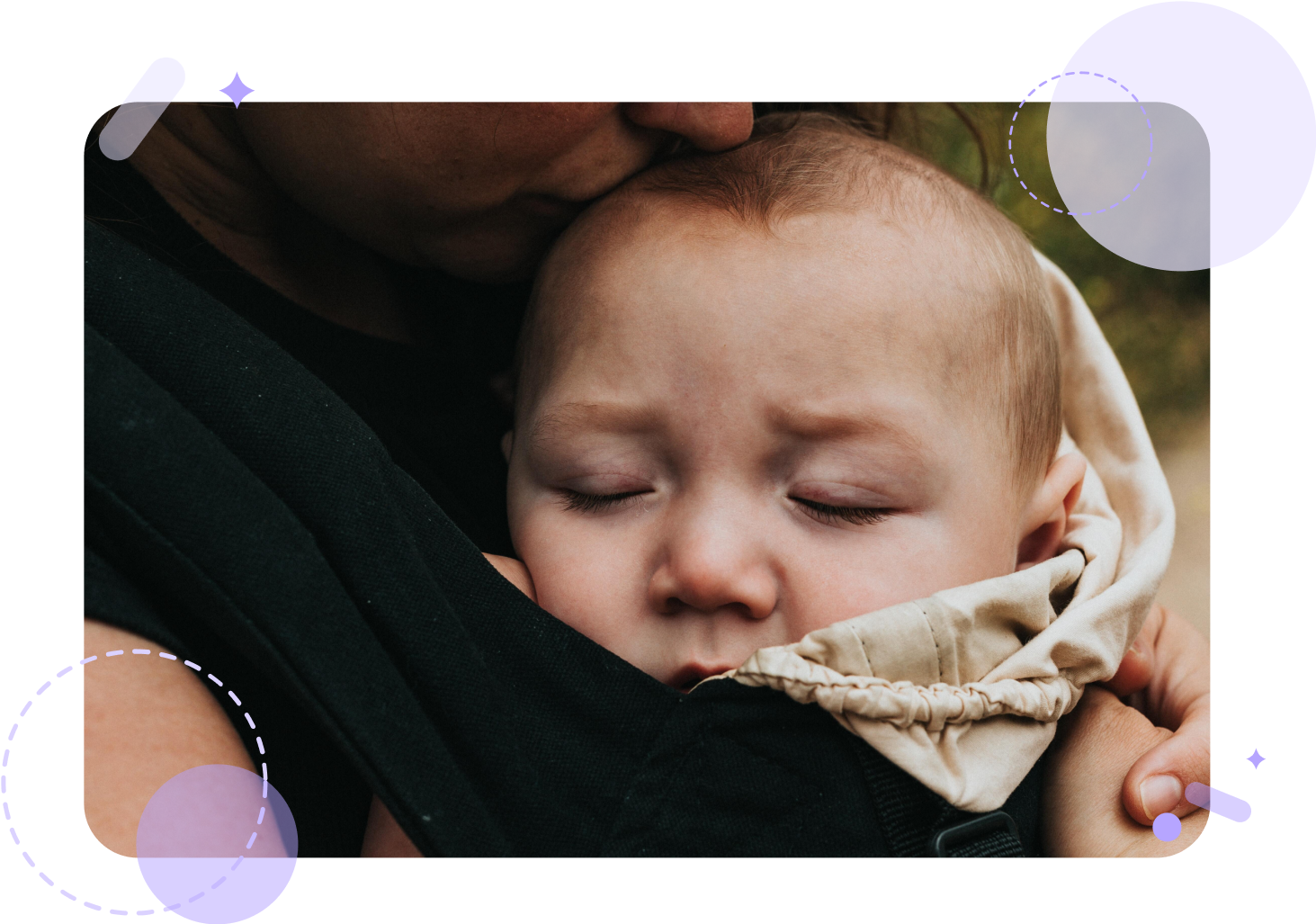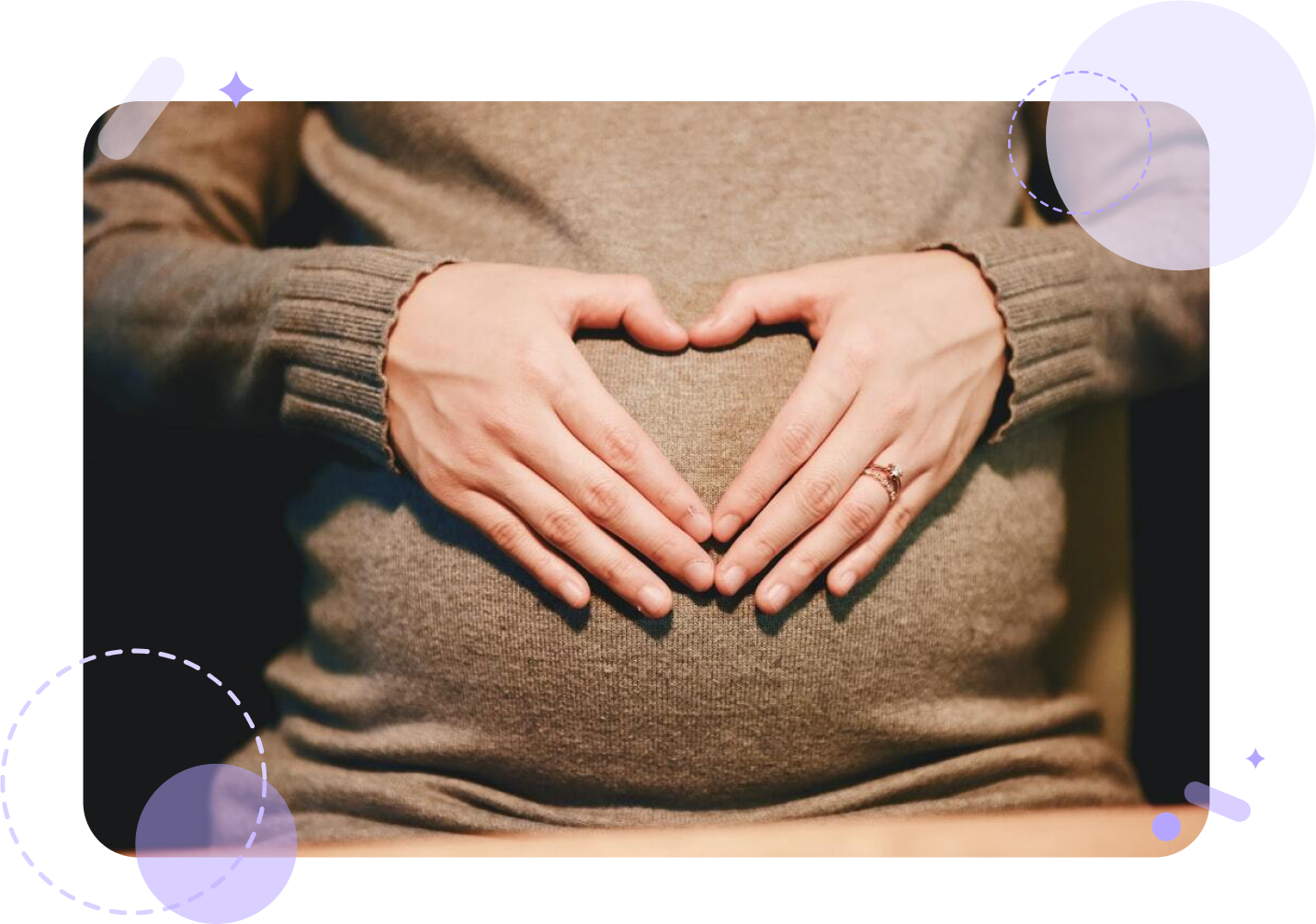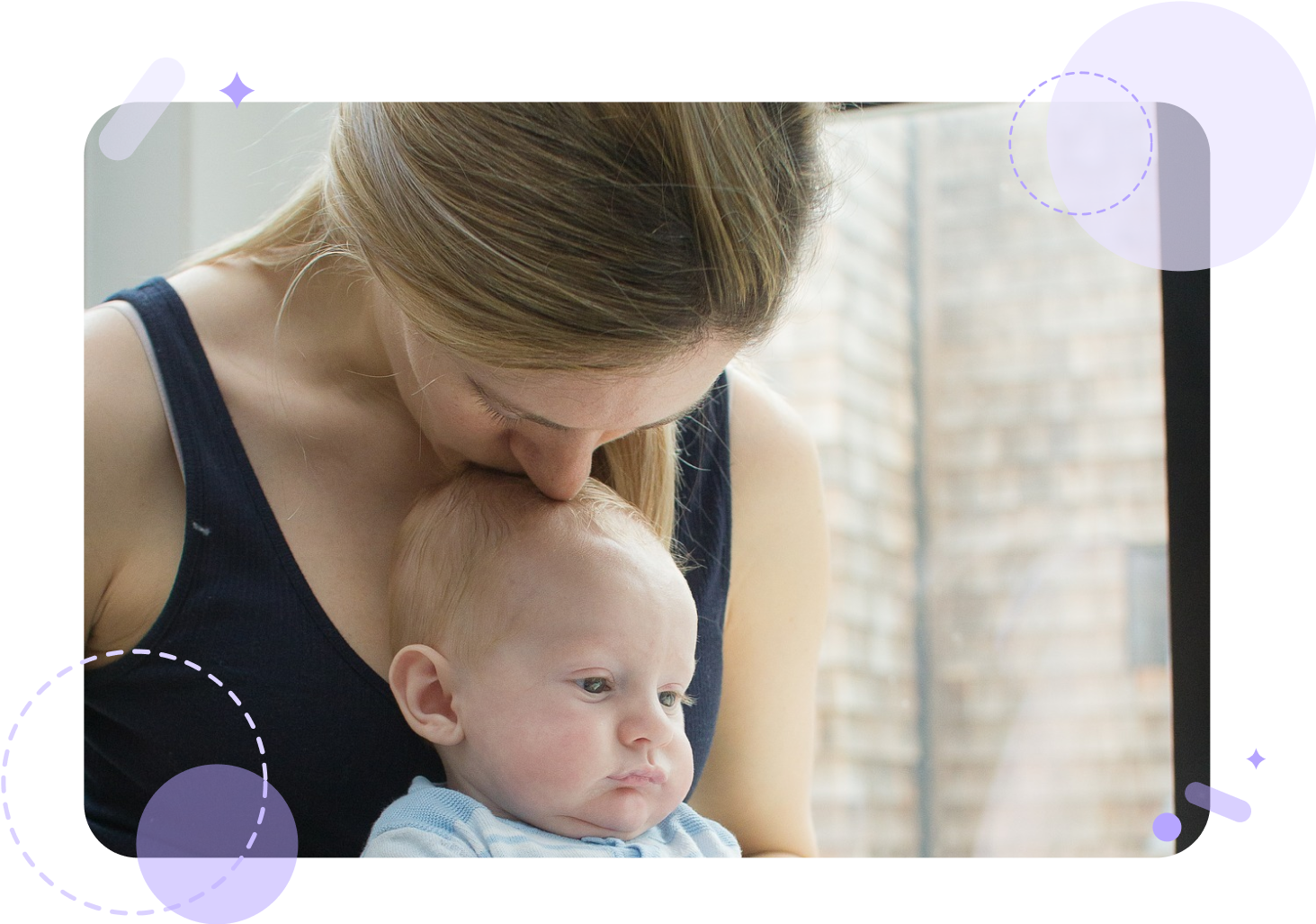
Having a baby is incredible, but it’s also incredibly hard. New parents grapple with a profound sense of shifting responsibility and identity, not to mention a distinct lack of sleep! For new moms, the surge of post-natal hormones can further complicate the adjustment period – which is where the concept of “baby blues” may come into play for the first few hours or days of motherhood. What happens when the hormones regulate to their normal levels, yet the depressive symptoms remain for weeks or even months?
Postpartum depression (PPD) could be the culprit. Triggered during the first year after giving birth, PPD is a deep, clinical depression that causes severe low mood, anxiety, and a host of risk factors for both mom and baby. Diagnostically speaking, PPD presents the same as any other depressive episode. Unsurprisingly, PPD varies from other depressive illnesses in that, while it is experienced differently by every mom, the onset and symptoms relate specifically to motherhood and baby care.
What Are the Symptoms of Postpartum Depression
Although PPD manifests differently for everyone, those living with this type of depression tend to experience some combination of the following symptoms in varying degrees of severity:
- Flat, low, or dark mood.
- Heightened anxiety.
- Increase or decrease in appetite.
- Sleep disruption or insomnia (beyond the typical new parent sleep loss).
- Decreased interest in previously enjoyable activities.
- Difficulty concentrating or communicating.
- In severe cases, thoughts of death or suicide.
- Social isolation; difficulty connecting with others or baby.
- Intense feelings of guilt, worthlessness, failure as a mother.
While this is certainly not an exhaustive list, the above symptoms are some of the most common. Unfortunately, many of these symptoms are common on a less severe level amongst new moms, so people often overlook the signs and fail to seek help. Besides that, there is so much fear of judgment and shame about “being a bad mom” that even if she knows she needs help, a mom might not feel deserving enough to reach out.
What Might Cause Postpartum Depression and Who Does it Impact?
There is no one known trigger for PPD, but researchers and clinicians agree on several risk factors that may predispose some women, like a family history of depression, previous depressive episodes, trauma, or other biological factors. Beyond that, medical professionals suggest that postpartum depression is often linked to stress, sleep deprivation, hormone fluctuations, and other challenges that arise from becoming a new mom.
Whatever the root cause, anyone can be diagnosed with PPD. Mental illness is not a choice or a weakness, nor is it something for a mom to be ashamed of – it’s a psychiatric medical condition with a real physiological impact. Like other physical illnesses, postpartum depression affects more than just the mom; it can also impact family members, friends, and most importantly, it can affect a baby’s development and nervous system regulation. Preserving a healthy mother-infant attachment is one of the main reasons why it’s so critical for new moms to get help for treating PPD as early as possible.
How is Postpartum Depression Treated?
Treatment plans for women suffering from PPD vary depending on their unique symptomology and situation. Firstline treatments for postpartum depression include, but are not limited to:
- Establishing or improving the mom’s circle of care and community for improved awareness and support from family and friends.
- Therapy, counseling, support groups, mentorship, or spiritual/religious guidance.
- Medical assessment for potential psychiatric prescriptions.
- Lifestyle changes for improved exercise, nutrition, and relaxation.
While there may not be a “quick fix” for curing postpartum depression, the important thing to know is that help is out there, treatments are available, and coping is possible. The hardest part is reaching out, but even that is easier than suffering in silence.
Please note, this blog is not a diagnostic tool or a PPD screening test – if you are concerned about your mental or physical health, please consult your family physician.
- Journal of Education and Health Review: Postpartum Depression Risk Factors – A Narrative Review
- International Journal of Women’s Health: Treatment of Postpartum Depression – Clinical, Psychological, and Pharmacological Options
- American Psychiatric Association: What is Postpartum Depression?
- CAMH: What is Postpartum Depression – Symptoms, Causes &Treatments
- Mayo Clinic: Postpartum Depression
 Back
Back

